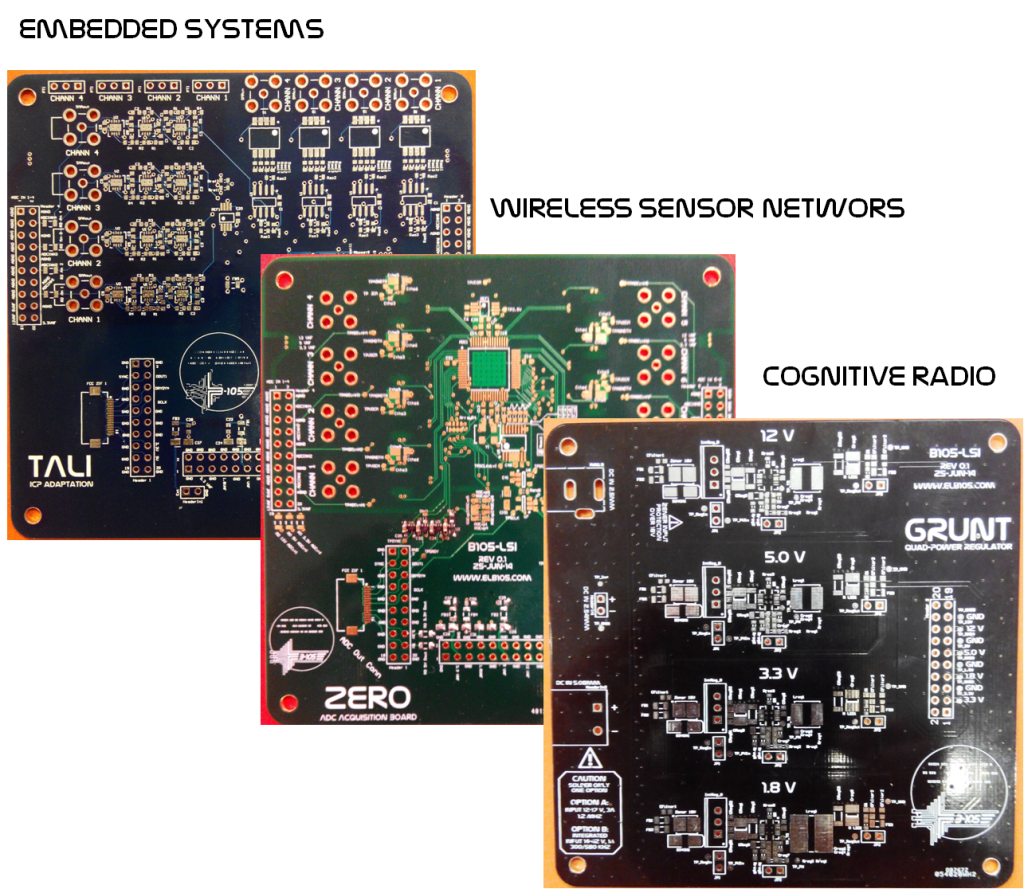RESEARCH @ B105
Embedded Systems
In today’s world, embedded systems are everywhere — homes, offices, cars, factories, hospitals, plans and consumer electronics. Their huge numbers and new complexity call for a new design approach. Research in this field concentrates on different aspects of embedded computer systems design. It involves a number of areas, such as real-time systems, cross-layer optimization, power consumption, acquisition modules, or optimization methods. The big challenge of this research is to find efficient methods and tools which can be used in industry to enhance a design process, make time-to-market shorter and improve overall quality of the final products.
Wireless Sensor Networks
One of the fastest growing sectors in recent years has undoubtedly been that of WSNs. WSN are increasingly being introduced into our daily lives. Potential fields of applications can be found, ranging from the military to home control through commercial or industrial, to name a few. The emergence of new wireless technologies such as IEEE 802.15.4 have allowed for the development of interoperability among commercial products, which is important for ensuring scalability and low cost. Research in this field concentrates on different aspects of WSN design. It involves a number of areas, such as energy harvesting, network lifetime, efficient routing protocols, localization algorithm, security strategies, synchronization mechanisms, sensors integration, and development tools. The big challenge of this research is to integrate software and hardware resources to get the optimal network for specific constraints.
Cognitive Radio
The increasing demand for wireless communication presents a challenge to make an efficient use of the spectrum. To address this challenge, Cognitive Radio (CR) has emerged as the key technology, which enables opportunistic access to the spectrum. This way, the cooperation between devices introduced by CR allows for better spectrum use, lower energy consumption and better data reliability. Each Cognitive Network (CN) node changes its transmission and reception parameters according to the sensed radio environment. CN has three main technical components: cognitive capabilities of devices, collaboration among terminals and learning about the history. Research in this field concentrates on different aspects of WSN and CR design. Cognitive Wireless Sensor Networks (CWSN) involves a number of areas, such as green energy strategies based on cognitive paradigm, cognitive based strategies for security, dynamic spectrum access, and development tools like simulators or cognitive nodes. The big challenge of this research is to incorporate cognitive capabilities to solve real problems.

